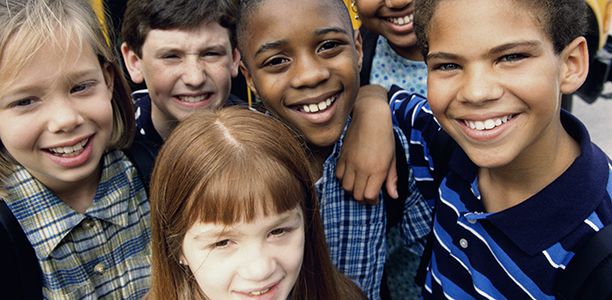National Children’s Commissioner from the Australian Human Rights Commission, Megan Mitchell says children’s sense of connection to a nurturing school community can offer protection from risky adolescent behaviours.
In a speech to be presented by UniSA’s Hawke Centre to launch the national summit, Behaviour in Australian Schools: current trends and possibilities, at the University, Commissioner Mitchell will explore what it means to be a signatory to the International Convention on the Rights of the Child and how the education system can better respond to children’s needs in accordance with the Convention.
“The Convention establishes that children and young people have the same human rights as adults, but are also entitled to special protection due to their unique vulnerabilities,” the Commissioner says.
“Those rights include the right to be safe, the right to care and support, to family, education and health care and the right to be heard.
“In 2012 the UN Committee acknowledged that while Australia had put in place important mechanisms to enhance young people’s participation, there were significant gaps for children under 15 and in schools.”
She said research published in the Educational Psychology Review shows that students who felt engaged with their school community and schools that delivered a means for students to influence policy, such as student representation, developed more resilient, responsible and caring behaviours.
“The Convention places a special emphasis on the right of all children to an education, not only access to education, but to education that encourages the development of their potential and talents, their cultural identity, their sense of responsibility and respect and their respect for human rights.
“The Convention is quite clear that school disciplinary measures should respect children’s dignity and reflect the broader values of the Convention.”
She says listening to children afforded them important respect.
“In my own listening tour of Australia – I talked with more than 1000 children and had input from a further 1300 online and through the post, and what came through clearly is that children need to be heard,” she says.
“They expressed real concerns about bullying and safety but also a great exuberance about ideas to improve life for themselves and others, and they were very keen not only to have their say but for people to respect their opinions.”
(Source: University of South Australia, Educational Psychology Review)










